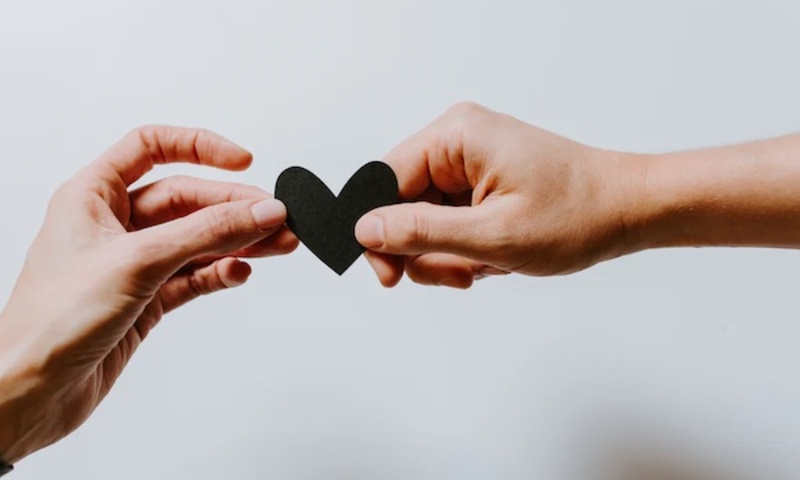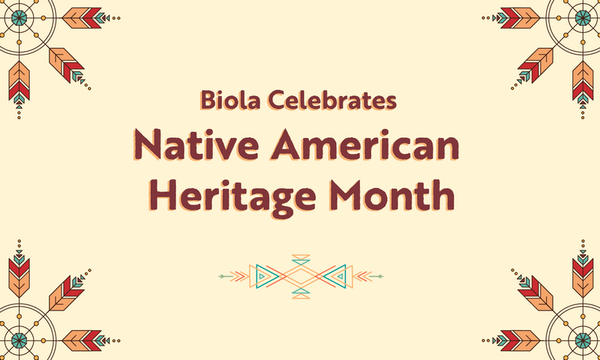There I was, minding my own business and watching Encanto, Disney’s newest movie, with my little brother over Christmas break, when what I thought was a lighthearted film for kids, exposed my deepest fears and insecurities through — worst of all — a musical number. The words character Luisa Madrigal sings in Encanto resonated with me deeply: “Under the surface I'm pretty sure I'm worthless if I can't be of service … Who am I if I can't carry it all?” I did not expect to cry while I watched donkeys dance nor contemplate how a Disney song communicated so perfectly the fear that arises when your worth is viewed solely through what you can contribute to relationships.
Like Luisa Madrigal, I am a middle child. Also like Luisa, I find myself constantly asking, “Am I worthless if I can't be of service?” Whether you are a middle child or not, this is a question we have all likely asked ourselves at one time or another, falling into the trap of believing that our worth in relationships lies in how much we contribute to it.
There have been times in my life when I was afraid that all of my relationships would disappear because I was not able to contribute to them in a way I felt was valuable, or that my personal struggles would be too much of a burden for others to put up with in our relationship. I realize that in my relationships with my family, friends and others, I have placed my worth in how well I can support, help and fix people whom I love. I believed that the only way to be valued in a relationship was if I kept my problems to myself and I was able to be of some ‘use’ to others.
Slowly, I have been learning how to combat that pattern of thinking by learning to recognize and pursue healthy relationships as I find my identity and worth in Jesus.
Below are some truths that Jesus has reminded me of as I learn how to separate my worth from what I can do for others.
You are not responsible for fixing others, and your worth is not found in your ability to do so.
Fixing people is Jesus’ job, my friends. Our job is to love people and remind them of how much Jesus loves them. Sometimes that means that we love sacrificially and speak hard truths, but we cannot view ourselves as responsible for other people's happiness. Release yourself from that pressure. If we think that our worth and value as people in relationships, whatever kind they may be, comes from our ability to fix others or make sure that we never bring anything negative to them, we are placing our worth in something finite and human, not in the identity that we have been given by God.
Suppressing your emotions, experiences and problems in relationships keeps you from authentic community.
When we keep our struggles, needs and passions from those we are in relationships with because we believe it is too much for someone else, this doesn’t make loving relationships any easier. Instead, it simply creates barriers between ourselves and others. When we do not allow ourselves to bring our authentic selves to relationships, we can end up internalizing the belief that our emotions are not valid and this can keep us from being honest and vulnerable in community. Not only does this keep us out of relationships that are real and loving, it deprives other people of that joy as well.
A messy life does not make you unworthy of being known and loved.
If we measure the value of relationships and ourselves in them only by what we contribute, we cheat ourselves out of the experience of full healthy relationships based off of each person viewing the other as a child of God and delighting in who they are, the messy parts and all. God has slowly been showing me that the parts of myself that are messy and that require more love and attention are not any less worthy of love in a relationship. Being anxious, depressed, hurting or tired does not disqualify you from experiencing fulfilling and God-honoring relationships. Instead, they open us up to the possibility of being loved vulnerably and radically in community the way God calls us to in Scripture.
We are not called to do life alone.
God has called us to carry one another's burdens (Galatians 6:2), but like Luisa in Encanto, I had somehow gotten it into my head that I was supposed to carry others burdens but no one should have to carry mine. Community is essential in being able to understand the full
character of God and experience His love in the ways He commanded — fully and reciprocally.
So how do you keep yourself from equating your worth to what you offer others in relationships?
You bravely allow yourself to be fully seen and loved. This does not mean you have to share every deep, dark secret with all your friends or family, but it could be choosing a few people you feel safe with, who you believe will love you unconditionally, who will carry your burdens with you and point you back to the Truth, to confide in and allow yourself to be loved. It is hard and scary to open yourself up in relationships where you allow yourself to be authentic, but God promises that His love can be manifested through community.
And to those who desperately want this community but feel like they do not have anyone — I understand that. I have been there more times than I can count. It is a painful place to be, but remember that Jesus is close to you in those seasons. He sees the desires of your heart and while you wait, patiently or impatiently, He will always be your best friend. Biola has so many amazing opportunities to create community that supports and loves you, but sometimes they are hard to find. The Well-Being Toolbox on the Biola website has amazing resources that can help you find places to connect on campus!
P.S. I love meeting new people so if you want to get coffee and make a new friend, I will always be willing! Reach out to me at @biolapeerwellness or peerwellness.ambassador@biola.edu
Kate Marie Fitzpatrick (Psychology, '22) is a Peer Wellness Ambassador in the Office of Student Wellness.
 Biola University
Biola University



